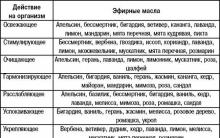Repeated breath-holding during sleep indicates that a person has serious health problems. In medicine, this condition is called sleep apnea syndrome.
A person who has a similar illness may not notice (most often this is the case) that in a dream he holds his breath for a long time, and does not even imply that he has a disease. This condition is witnessed by the patient’s relatives, who observe holding their breath for 10 to 30 seconds, and their complexion may change.
Stopping breathing during sleep in people who do not have other diseases is quite rare, approximately 4-8%. But in patients suffering from hypertension, it reaches almost 32%. Despite the fact that this disease has been known to medicine for a long time, there are few explanations for it.
What to do if you hold your breath while sleeping?
People who are faced with this problem are confused because they do not know what it is and how to deal with it. There is no need to panic; it is important to know that this disease can be treated at home; as a rule, this condition does not require urgent hospitalization. But it is important to understand that in order to identify the cause in the near future, it is necessary to go to a sleep specialist who will conduct a series of examinations. Only medical measures will help determine how often shortness of breath occurs during sleep, and with what frequency. Only after receiving this data will the doctor be able to prescribe the necessary and correct treatment.
Causes of the disease
Sleep-holding syndrome occurs due to blockage of the pharynx. In a normal state, air enters the lungs and back through it, but sometimes, for a number of reasons, it is completely closed, in which case breathing stops during sleep. It is based on these symptoms that specialists diagnose apnea.
In medical practice, there are often cases when, during sleep, breath holding syndrome occurs due to problems that have arisen in the nervous system. In this case, the cerebral respiratory center does not work fully and intermittently sends impulses to the muscles that are responsible for contracting the chest, as a result of which breath holding occurs during sleep.
Overweight people are more susceptible to this disease. Since fatty tissues tightly envelop the pharynx and thereby compress it. During sleep, a person's muscles come to rest. In this condition, the airways periodically close, after which the patient stops breathing during sleep. In such a situation, oxygen in the blood decreases sharply. This is a kind of stress for the body, which puts pressure on the brain. The main organ of the central system is triggered and sends impulses to the muscles, which immediately become toned. During sleep, a person in this state suddenly jumps up and takes a deep breath, after which he continues to sleep, which is why patients most often do not remember what happened to them at night. And this situation repeats itself as soon as the muscles weaken again.
We can list the reasons why this problem occurs during sleep among adults:
- Smoking;
- Use of sleeping pills;
- Alcohol;
- Diseases of the nasopharynx.
In children, this disease occurs in the presence of adenoids, as well as with severe enlargement of the tonsils; there have been cases of breath holding due to allergies.
A syndrome that occurs when there is a malfunction in the nervous system due to heart failure or brain injury.
Sleep apnea in children
Premature babies often suffer from this problem. In infants, this syndrome is central in nature, since their nervous system is not yet formed. It is worth noting that this condition is quite rare, and in most cases, it is the cause of sudden death in a dream.
In premature infants, this syndrome occurs due to brain injury, congenital anomalies, or due to heredity.
Treatment of breath holding syndrome
In order to prescribe treatment, specialists conduct a series of medical examinations, after which they determine the cause of breath holding syndrome.
Apnea can occur in patients with excess soft tissue in the throat; in such a situation, surgical intervention is often resorted to. In the case of a deviated nasal septum or adenoids, doctors most often prescribe the same type of treatment.
It is important to know that with a syndrome such as sleep apnea, surgical intervention does not always have positive dynamics. In such situations, the most effective treatment that gives a good recovery result is CPAP therapy. The principle is to use a special device that forces air into the respiratory tract of a sleeping patient, preventing the throat from closing. 
Patients suffering from central apnea are usually prescribed the same treatment. In difficult cases, additional devices for ventilation are used.
For each cause of such a syndrome, appropriate treatment is used. For example, patients with a constantly stuffy nose are prescribed special drops that contain a hormonal agent. Thanks to this medicinal composition, swelling of the mucous membrane is reduced, which allows for improved breathing.
Patients suffering from addiction to alcohol or sleeping pills can only get rid of sudden respiratory arrest by giving up their addictions.
Today, patients can be offered special devices that need to be inserted into the mouth before going to bed, resembling mouth guards. This method of getting rid of respiratory arrest syndrome is prescribed to people with a tongue that sinks in their sleep.
In addition to the above remedies for relieving apnea, patients are often recommended exercises to strengthen the muscles of the larynx, and people who are overweight are recommended to diet for weight loss. To improve breathing during sleep, it is also recommended to raise the bed from the side of the head by 10–20 cm.
Traditional medicine treatment
To facilitate breathing and eliminate excess mucus in the sinuses, use a saline solution; for this you will need:
- 1 tsp sea salt;
- 150 ml water.
Dissolve a teaspoon of salt in warm water, then rinse your nose before going to bed; this method helps resolve mucus.
People suffering from constant nasal congestion cannot constantly use pharmaceutical drops, since over time they become addictive. Doctors often recommend using formulations made from natural ingredients. For example, some people are helped to cope with this problem by drops based on sea buckthorn oil; the dosage required is 4 drops in the nose before bed.
Patients should clearly understand that as soon as such problems are discovered, they must immediately contact a specialist, since delay can cause great harm to health and life. The doctor will perform the necessary medical examination, after which the cause of sleep apnea syndrome will be clear, and will prescribe appropriate therapy.











Aromatherapy - Essential oils: table of properties and applications
Cleansing the energy of an apartment with a church candle
Essential oils for aromatherapy: properties, use and contraindications
Weakness in the body and drowsiness: causes in adults
How to clean an apartment from negativity with a church candle